By Eileen JonesAmerican movies are dead, people. I know I’ve hinted before that American movies, collectively, were unwell, maybe even terminally ill, but that was in the still-hopeful past. Now it’s officially over. We can stop checking its pulse in the form of the weekly movie openings to see what’s being offered to us, because nothing’s being offered to us, and nothing’s going to be offered to us. Pull the plug. Hollywood, we hardly knew ye.
It’s the 4th of July weekend, and that’s when the studio conglomerates used to stake their all on something big. It usually turned out to be something laughable as well as big, but still, ever since Jaws started the summer blockbuster tradition, we’ve been able to count on Hollywood at least attempting a huge Independence Day act of showmanship. But this year, what do we get? Transformers 3—or is it 4?—and Larry Crowne, a tiresome-looking heart-warmer with Tom Hanks and Julia Roberts. Old junkyard action and old scrap-heap stars. It’s like an acknowledgement that Hollywood has nothing left to give, nothing in stock that isn’t long past its sell-by date. It’s all empty shelves back there.
And it’s not like American independent filmmakers are stepping up with stuff that’ll electrify us, either. They’re down to retreads too. They’re opening Terri, about a sad obese teen who finds an understanding friend in the school principal played by John C. Reilly—an infuriatingly phony premise targeting the indie audience sweet spot, flicks about supposedly edgy, quirky misfits who find happiness without having to compromise on their quirks. There’s also The Perfect Host, one of those class-commentary turning-the-table things about a criminal insinuating himself into a wealthy home only to find out his host is a more dangerous creep than himself. It stars David Hyde Pierce.
Have you hit Fandango to buy your tickets yet? No, I didn’t think so.
That’s how it’s gone this whole year, and last year too. You check the openings, you stare in disbelief, you resign yourself to more Netflix rentals or hope something’s on TV. You exclaim solemnly to others, or they exclaim to you, how remarkable it is that all the American talent seems to have migrated to TV, the writing talent and directing talent and acting talent. They tell you about True Blood or Modern Family or Breaking Bad, you rave to them about Justified or Reno 911 or Archer.
I’m currently surviving on reruns of a show called Party Down which only lasted two seasons but is the best thing I’ve seen in ages. Never thought I’d see the day when a new take on cracked American utopianism could be presented to me and I’d believe in it again. Somehow these gifted Party Downers have combined utopian dreams with merciless satire, and not shorted either one. Party Down is about Hollywood hopefuls working for a badly-run catering company, and each episode covers another catering job in L.A.—a pornography award show after-party, a community theater’s opening night event, the funeral for a pillar of the black community, a fundraiser for an expensive pre-school, Steve Guttenberg’s birthday party.
Catering these events is rotten, demeaning, dead-end work for our cast of would-be actors and writers and urban-achievers, and it’s presented with horrifying accuracy. If you’ve lived in L.A., and/or tried to “make it” in the entertainment industry yourself—God help you!—then you recognize it all, the miasma of desperation and delusion and networking and envy, the frantic self-help New Age talk, the dead-eyed vicious types that thrive there and all their ready-made victims that are swarming into town every day.
You also recognize the low charge of excitement that pulses through all the crap and keeps you there long after you know it’s a mug’s game. You’re always so close, so close to scoring the invitation, meeting the producer, getting the part, signing the contract, living the fantasy. That’s how you go crazy there, it’s always just about to happen, you’re just waiting on one phone call to give you the good news, and in the meantime you can see the Babylonian revels in the VIP room though the cracked door and your friend knows someone who can get you in.
The hero of Party Down is Henry (Adam Scott, now in Parks and Recreation, another excellent show), who starts off the series as the guy who’s finally gotten wise and quit trying to be an actor. He’s still driving the BMW he bought when he did a beer commercial that made him briefly famous for a lame catchphrase, “Are we having fun yet?” Thin, melancholy, and worn around the edges, Henry has adopted the pose of someone who is in Hollywood but not of it, catering events at which everyone else is scrambling and scheming and sweating while he looks on with quizzical irony. It’s a popular pose in Hollywood, but tough to hold, and Henry can’t hang onto it.
The impeccably structured series ends with Henry, still wised-up but helpless to resist, going in to audition for a part in a film. By that point you’ve gotten so fond of all the poor losers and so caught up in the crazy kinetic possibilities that open up/close down/open up again for them at every event, you think, “Ah, no, Henry, don’t do it!” at the same time you feel like “What the hell, go for it, Henry, maybe it’s all worth it!”
Yeah, the show manages to re-sell Hollywood to you even as it eviscerates Hollywood. Most amazing thing.
And it’s a good reminder that, perversely, we don’t want Hollywood to die, we’re really hoping it’s just in a deep coma. We need the films; it’s tough to do without them. It’s strange to remember that only a few years back, there was this burst of great, heartening movies, and American filmmakers were right in there slugging. In 2009 we saw Inglourious Basterds, Coraline, A Serious Man, Tropic Thunder, District 9, The Informant!, Capitalism: A Love Story, and The Fantastic Mr. Fox, all stunners, and there was strong stuff too in The Dark Knight, Iron Man, Sherlock Holmes, and Taken.
You know what’s been great so far in 2011? Rango. That’s it. Rango. And it’s July.
So what happened?
Mark Ames suggested to me that the obvious answer is, the easy money has dried up since then. Oligarchs are sitting on theirs, taking a wait-and-see attitude, and nobody else has got any. That’s bound to curdle the guts of notoriously not-gutsy American film producers, studio execs, and financiers, and make them want to play safe. Even mildly risky fare gets dumped. One result, as everybody has already noticed, is a bigger percentage of sequels coming out in 2011 than in any previous year: Transformers 3, Pirates of the Caribbean 4, Hangover 2, Kung-fu Panda 2, Cars 2, X-Men 4, Harry Potter 16 or whatever it is…
We might also be looking at the sheer exhaustion of the Hollywood business model established in the mid-’70s-early-’80s, the “blockbuster” system. After The Godfather and Jaws and Star Wars hit it big in the ’70s, Hollywood businessmen figured out that using “synergistic” marketing and merchandizing methods, they could make a few big “tent-pole” films so internationally successful they’d support entire studios for the year, regardless of how well the rest of the year’s slate of films did.
When independent film became an ’80s-’90s phenomenon, initially as an alternative to the super-commercial Hollywood product, it got swiftly co-opted and became a useful part of the overall system, a kind of oppressed and vampirized minor leagues for the studio conglomerates. Films developed and financed by struggling indie producers make for nice easy pickings at film festivals, where new talent gets scouted and any interesting film ideas or innovations get stolen.
It all worked pretty well, off and on, or at least pretty profitably for the conglomerates, for a surprisingly long time. But lately it doesn’t seem to be working for anybody. Something needs to change, something is DUE to change. Not the nibbling changes around the edges of the main system caused by increased DVD sales and rentals and piracy, and streaming video and same-day-as-theaters releases and all that—something bigger and more basic. After all, the classic Hollywood studio system only survived thirty-some years, and now we’ve had thirty-some years of the blockbuster-and-indie-film system as its successor. We seem to be sick of that now, with good reason. If we want movies at all during the next thirty-some years, we need a new system.
Of course, we could just simplify and blame audiences for everything. Critic Manny Farber did that back in 1952 in an article he titled, uh, “Blame the Audience.” In it, he noted that the reason we have so many big sloppy sanctimonious movies instead of lean, mean, sharp movies was because American audiences were too stupid to get their fat asses into the right theaters to see the right movies when they happened to come along. Of course, he blamed other critics even more for encouraging audiences to like the wrong kind of movies. That was back when people read critics.
It’s still a good point. Though I’m not sure TV audiences are any better than film audiences when it comes to a buzzard-like preference for consuming offal. Nobody much watched Party Down when it first aired, great as it was, as loaded with dazzling talent as it was, so the Starz Channel brass axed it with easy-come-easy-go efficiency.
There’s a rumor that Party Down might get made into a movie, though. Probably about the same time the cult show Arrested Development gets made into a movie; it’s always already just about to happen any day now. And that’s why we need Hollywood to wake up from its coma.
DANCING NEBULA

When the gods dance...
Friday, July 15, 2011
American Movies Are Dead (So Party Down) - By Eileen Jones
Subscribe to:
Post Comments (Atom)
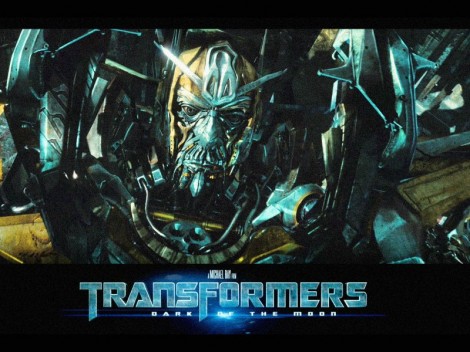
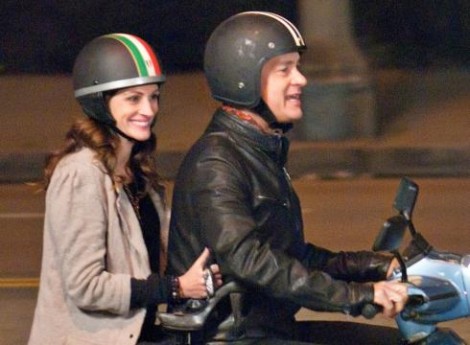
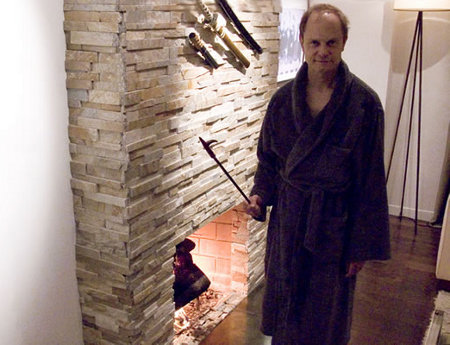
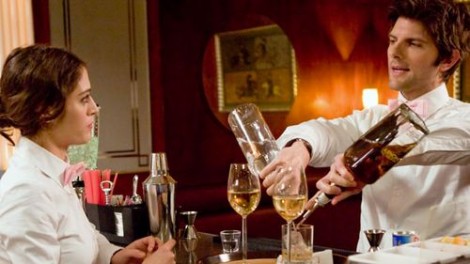
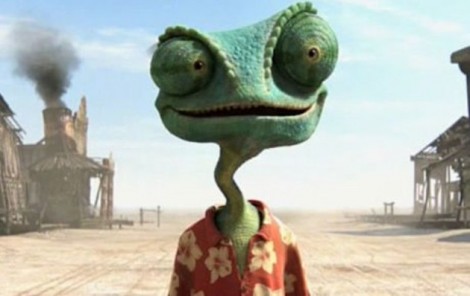
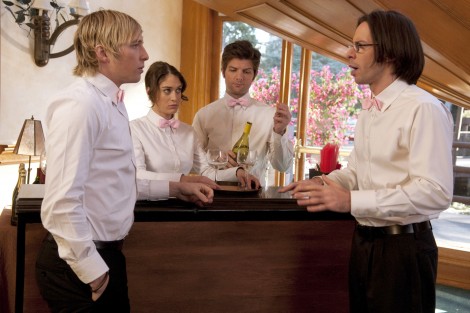
No comments:
Post a Comment